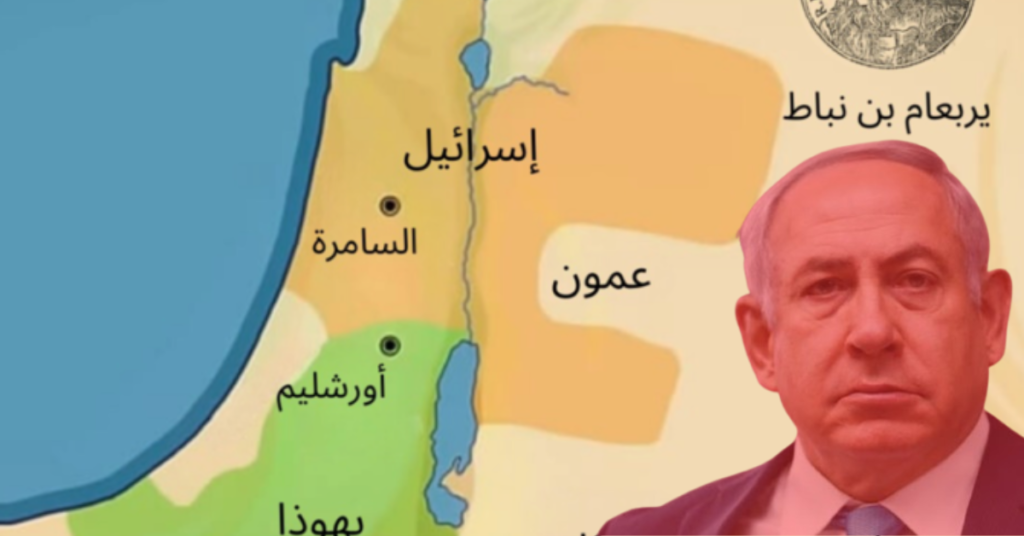The release of a controversial map portraying a “Greater Israel” has ignited global criticism, particularly from Arab nations. Allegedly circulated by ultra-nationalist factions in Israel, the map envisions territorial expansion into parts of neighboring countries, including Jordan, Syria, Lebanon, and Egypt. This development has intensified tensions in the Middle East, with many accusing it of being a provocative move that threatens regional peace and stability.
What Is the “Greater Israel” Map?
The “Greater Israel” map reflects a long-debated concept rooted in interpretations of Zionist ideologies and religious beliefs. It claims that certain territories historically belong to the Jewish people. While such views have mostly existed on the fringes of political discourse, the map’s explicit depiction of these territorial claims has alarmed regional stakeholders.
Despite its circulation through unofficial channels, the map’s release has come at a particularly sensitive time. Rising tensions over Israeli settlements in the West Bank and disputes over East Jerusalem have further amplified its contentious symbolism.
Arab Nations Condemn the Map
Arab countries have universally condemned the map, describing it as a destabilizing and incendiary act.
- Jordan: Jordan’s Foreign Ministry labeled the map a “direct threat to sovereignty” and a “danger to peace efforts in the region.”
- Egypt: As a regional mediator and signatory to a peace treaty with Israel, Egypt expressed strong opposition, calling the map a “violation of international norms.” Egyptian diplomats warned it could disrupt fragile regional agreements.
- Arab League: Convening an emergency session, the Arab League’s Secretary-General Ahmed Aboul Gheit condemned the map as a “reckless provocation” that risks escalating tensions across the Middle East.
Global Implications of the Map
The release of the “Greater Israel” map has sparked concern beyond the Arab world. International observers warn that it symbolizes expansionist rhetoric that could embolden hardliners and further erode trust among Israel’s neighbors.
The United Nations has called for restraint, reiterating the importance of adhering to international law. A UN spokesperson emphasized that unilaterally redrawing borders undermines ongoing peace efforts and jeopardizes prospects for a two-state solution.
Israel’s Stance on the Map
The Israeli government has distanced itself from the map, categorically rejecting claims that it reflects official policy. Prime Minister Benjamin Netanyahu’s office dismissed the map as the work of fringe groups, reaffirming Israel’s commitment to regional peace and stability.
However, critics argue that Israel’s policies, particularly the expansion of settlements, have fueled perceptions of territorial ambitions. Opposition leaders within Israel have also criticized the map, warning that it damages the country’s diplomatic credibility.
A Threat to Middle East Stability
The “Greater Israel” map release highlights the challenges of achieving lasting peace in the Middle East. While unofficial, its implications resonate deeply in a region marred by conflict and distrust.
As Arab nations rally in condemnation, this incident serves as a stark reminder of the fragility of regional peace. It underscores the urgent need for constructive dialogue and global mediation to prevent further escalation. International stakeholders must work toward upholding principles of sovereignty and coexistence to ensure stability in the region.
Key Takeaways
- The release of the “Greater Israel” map has intensified tensions in the Middle East.
- Arab countries, including Jordan, Egypt, and the Arab League, have strongly condemned the map.
- The UN and global observers emphasize the importance of international law and the two-state solution.
- Israel denies the map reflects official policy but faces criticism over its settlement expansion policies.
Conclusion
The controversial map has reignited debates over sovereignty and peace in the Middle East. Its release, though unofficial, has inflamed regional tensions, requiring urgent international efforts to mediate and rebuild trust among stakeholders.

